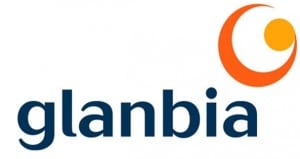
Richard Murphy, Head of Business Solutions at Datapac, outlines five ways businesses can get the most out of their ERP systems.
An Enterprise Resource Planning system offers business owners a transparent and completely integrated view of all aspects of their business. While ERP has always been able to help companies to move their business forward, as businesses continue to increasingly embrace remote working, the capabilities of an ERP system have never been more useful.
A single centralised ERP solution that replaces disjointed systems in a business can be hugely beneficial in managing a business with employees operating on a part-time or full-time working from home basis. Here are five ways a well-implemented ERP system can help businesses prepare for the future.
1. Access data in one place, from anywhere
ERP enables a complete overview of the performance of a company in one place. The ability to make big decisions for the future of the business based on accurate, up-to-date data for every facet of the business, is a colossal benefit to management. The collation of data centrally and linking of different business functions and roles helps to paint a transparent picture of where exactly the company is currently at.
Furthermore, an ERP system such as Microsoft Dynamics 365 Business Central, with the range of user interface options it offers, can allow this data to be accessed securely from anywhere and on any device interface, be it PC, web-based, tablet or other mobile device. This is hugely advantageous for remote working, a pressing issue facing businesses today.
2. Setting key performance indicators
Setting the right targets is essential to continued business success. An ERP solution should be flexible enough to allow any company to define and tailor analysis and performance indicators to their unique business requirements and to adapt these as they change over time. As targets and indicators will vary depending on the user’s role, the system can also adapt to show role-specific landing pages and indicators. In Microsoft Dynamics 365 Business Central, role centres can be configured to enable system data to be presented in the most efficient way.
For example, warehouse staff will be mostly concerned with maintaining appropriate and optimal stock levels to meet demand, while credit controllers within a business will be concerned with managing cashflow, credit limits and overdue accounts. An ERP solution should help everyone in the business to stay on track with a clear view of the right KPI’s based specifically on their role.
3. Business continuity
In addition to enabling remote access to important data, ERP can also help ensure business continuity from a people perspective in cases where staff are unable to come to the workplace. As well as having access to the right information, an equally important consideration of ERP is having all information easily accessible in one place. This helps to reduce information silos; a problem exacerbated by workplace disruptions.
For example, if businesses are experiencing issues with absences or limited availability of key members of the team at any given time, it is vital that other team members are able to access the records that are normally managed by these now absent staff. Centrally available information, as opposed to data confined to silos within a business, is a key element of business continuity.
4. Adopt industry best practice
An ERP solution can often be completely customised by certified partners to fit a business’s operations and needs. However, this doesn’t always need to be the case. ERP solutions like Microsoft Dynamics 365 Business Central are used by hundreds of thousands of companies across the globe to efficiently manage their business according to best practice business process models. Bespoke solutions can be complex and expensive to upgrade. In many cases, adjusting business processes to the system is a better option and can elevate a company’s operations to best practice, leading to a host of efficiencies and savings.
5. Flexibility and scalability
ERP solutions can help organisations of all sizes and from any industry to better manage their business and make better, more-informed decisions. With Microsoft Dynamics, there are not only a wide variety of solutions on offer to suit your requirements, but also a great range of pricing and implementation options, such as subscription-based licencing and cloud-hosting or on-premise models, making ERP affordable for almost every business. With its database hosted on Microsoft SQL Server, Microsoft Dynamics 365 Business Central solutions can be easily scaled, so they can grow in line with the business, meaning businesses are always equipped with a system capable of meeting their requirements.
Datapac is Ireland’s leading Microsoft Dynamics ERP system provider, with specialist experience in implementing 365 Business Central (ERP), Microsoft Dynamics NAV (ERP) and 365 Sales (CRM) solutions. We have helped hundreds of organisations throughout Ireland in sectors such as manufacturing, distribution, construction and services, to streamline their disparate data and systems into one integrated platform. With a tailored and optimised ERP system in place from an experienced, skilled and highly accredited provider like Datapac, Irish businesses can operate more efficiently and productively while making more informed decisions, helping them to confidently plan for current and future success.
For more information on how to successfully implement an ERP solution, contact 1850 328 272 or e-mail info@datapac.com
Register for upcoming events
-
 "At Barretstown, we rebuild the lives of children, and their families, affected by childhood cancer and other serious illnesses. We serve 5,000 campers a year and have 1200 volunteers each year. Communication is crucially important and Datapac has helped us to streamline, improve and ensure efficiency."
"At Barretstown, we rebuild the lives of children, and their families, affected by childhood cancer and other serious illnesses. We serve 5,000 campers a year and have 1200 volunteers each year. Communication is crucially important and Datapac has helped us to streamline, improve and ensure efficiency." -
 "Datapac has provided us with a fantastic product and world-class levels of service and support. Whenever people ask me about our experience with Datapac I’m always ready to sing their praises and I would happily recommend their services to any organisation."
"Datapac has provided us with a fantastic product and world-class levels of service and support. Whenever people ask me about our experience with Datapac I’m always ready to sing their praises and I would happily recommend their services to any organisation." -
 "For many years Datapac has been our sole supplier for the maintenance of Personal Computers and Peripherals in Ireland. Through their Service Centres in Wexford and Dublin, Datapac provides excellent support to our businesses throughout the country and consistently meets the SLA targets which we have set. The skill, expertise and experience of their engineers and other technical support personnel are of the highest standard."
"For many years Datapac has been our sole supplier for the maintenance of Personal Computers and Peripherals in Ireland. Through their Service Centres in Wexford and Dublin, Datapac provides excellent support to our businesses throughout the country and consistently meets the SLA targets which we have set. The skill, expertise and experience of their engineers and other technical support personnel are of the highest standard." -
 “The value of dealing with an HP Gold partner in this process can’t be underestimated. Datapac provide us with a local touch and can cover the full range of our IT requirements, but when there is a specific technical requirement like this, they can bring the specialist technical resources of HP to the table. HP and Datapac had a thorough discussion with us around our requirement - and had really done their homework - and then were able to provide us with a very highly specified test platform for us to prove the application on before we committed to purchase.”
“The value of dealing with an HP Gold partner in this process can’t be underestimated. Datapac provide us with a local touch and can cover the full range of our IT requirements, but when there is a specific technical requirement like this, they can bring the specialist technical resources of HP to the table. HP and Datapac had a thorough discussion with us around our requirement - and had really done their homework - and then were able to provide us with a very highly specified test platform for us to prove the application on before we committed to purchase.” -
 Datapac understands our needs and requirements and has the expertise and experience to follow through on all our requests. Our constant need to reduce costs has been assisted by Datapac's ability to suggest alternative solutions and methods whilst improving both efficiency and productivity. Our partnership with Datapac is akin to having an IT department on site that we simply could not provide ourselves.
Datapac understands our needs and requirements and has the expertise and experience to follow through on all our requests. Our constant need to reduce costs has been assisted by Datapac's ability to suggest alternative solutions and methods whilst improving both efficiency and productivity. Our partnership with Datapac is akin to having an IT department on site that we simply could not provide ourselves.